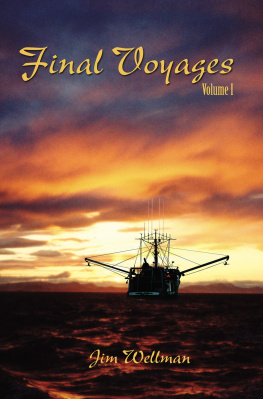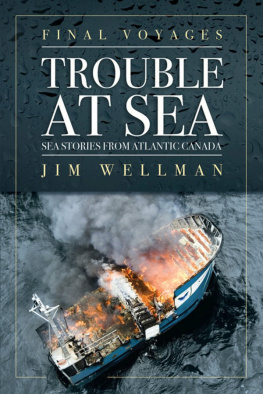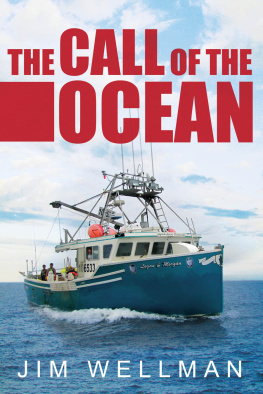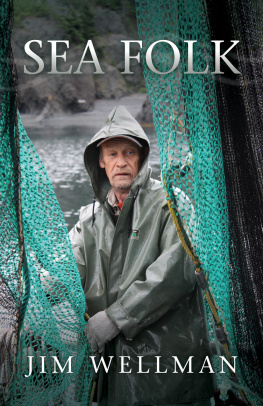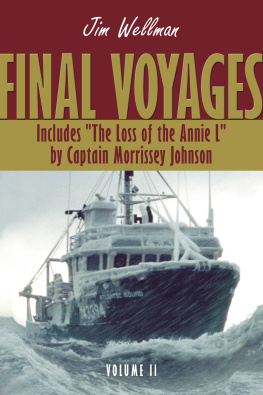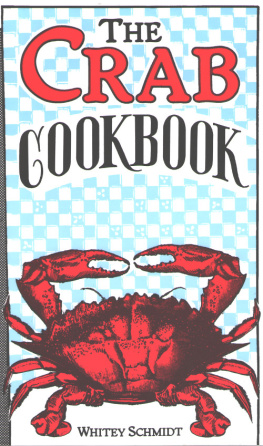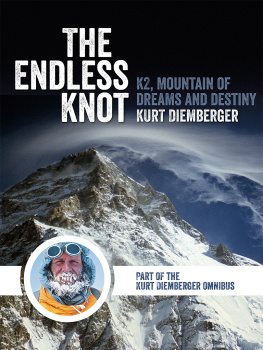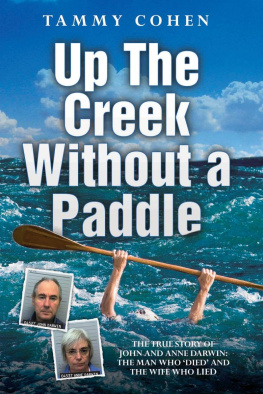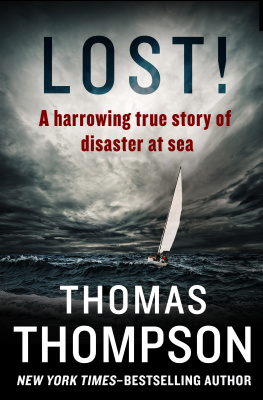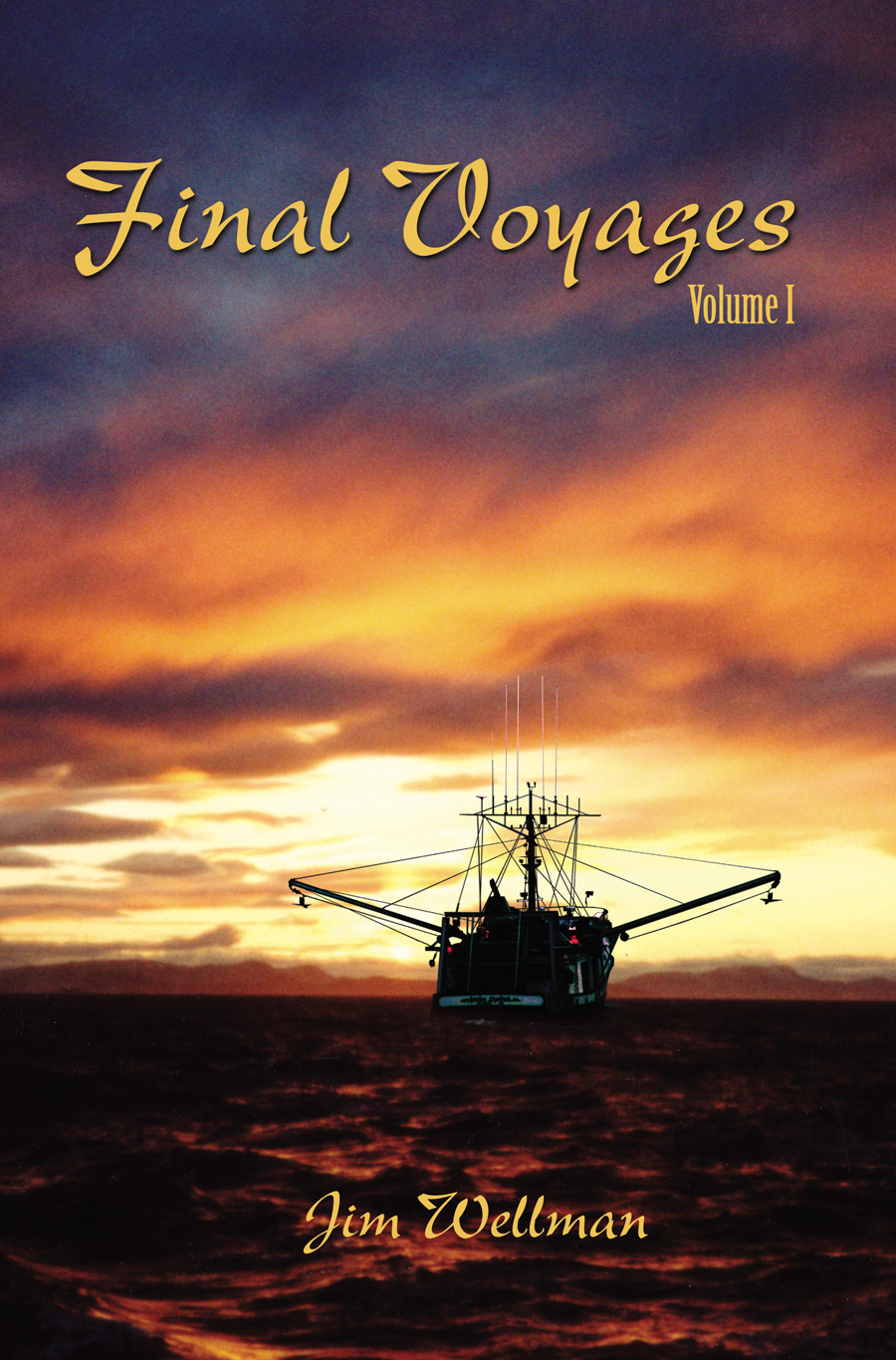
Final Voyages
Volume I
by
Jim Wellman
Flanker Press Ltd.
St. Johns, NL
National Library of Canada Cataloguing in Publication
Wellman, Jim, 1946-
Final voyages / by Jim Wellman.
Stories originally published in The Navigator, 1997-2003.
ISBN 1-894463-43-9 (v. 1)
1. Fisheries--Accidents--Atlantic Coast (Canada)--Anecdotes.
2. Fishing boats--Atlantic Coast (Canada)--Anecdotes. 3. Shipwrecks--
Atlantic Coast (Canada)--Anecdotes. I. Title. II. Title: Navigator (St.
Johns, Nfld.)
VK1275.A856W44 2003 363.1196392209715 C2003-905486-1
Copyright 2003 by Jim Wellman
All rights reserved . No part of the work covered by the copyright hereon may be reproduced or used in any form or by any meansgraphic, electronic or mechanicalwithout the written permission of the publisher. Any request for photocopying, recording, taping or information storage and retrieval systems of any part of this book shall be directed to the Canadian Reprography Collective, 379 Adelaide Street West, Suite M1, Toronto, Ontario M5V 1S5. This applies to classroom use as well.
Printed in Canada by Friesens Corporation
First printing November 2003
Second printing January 2004
Flanker Press Ltd.
P.O. Box 2522, Station C
St. Johns, NL A1C 6K1
Toll Free: 1-866-739-4420
Telephone: (709) 739-4477
Fax: (709) 739-4420
E-mail: info@flankerpress.com
www.flankerpress.com
Dedication
This book is dedicated to the families of the thousands of fishermen in Atlantic Canada who lost their lives at sea in the pursuit of earning a living from the northwest Atlantic Ocean.
Acknowledgements
A Sincere Thank You to:
All the women and men who courageously allowed me to invade their privacy and so generously recounted for me the most painful times of their lives.
The publishers of The Navigator magazine. From day one, TriNav Directors Paul Pinhorn, Trevor Decker and Rick Young encouraged me to publish Final Voyages as a book.
Stephanie Moore graphic arts designer with The Navigator magazine for her ingenuity in the creation of the cover for this book.
And to the readers of The Navigator who have made Final Voyages one of the most popular features of the Voice of the fishing industry in Atlantic Canada.
Jim Wellman
Table of Contents
Introduction
Fishing has long been documented as being the most dangerous occupation in the world. That is especially true in the harsh, and often bitter, marine environment of Atlantic Canada.
The report of the Royal Commission on the sinking of the drill rig Ocean Ranger in 1982 stated:
There are few areas in the world which possess as severe environmental conditions as the continental shelf off eastern Canada. Nowhere else are the combinations of wind, wave, fog and ice as perilous and unpredictable as in that vast and varied expanse of ocean.
Those perilous conditions have caused the sinking and loss of hundreds of Atlantic Canadian fishing vessels, claiming enormous loss of life.
Fishing families in towns like Grand Bank, Burin, Twillingate, Lunenburg, Bonavista, Yarmouth and Glace Bay have too often suffered the pain of losing husbands, fathers, brothers and sons to the ocean that, ironically, also provided those same men and their families its great bounty of riches.
Former host of CBC Radios Fisheries Broadcast and now managing editor of The Navigator, Jim Wellman recounts some of those gripping tales as part of his regular monthly feature in The Navigator, an Atlantic Canadian fisheries publication.
Wellman has restricted his stories to incidents involving small/inshore vessels using the federal governments standard of less than 65 feet in length as the definition of inshore.
Dubbed Final Voyages, the feature has been one of the most popular sections of The Navigator since the magazines first issue in December 1997.
Ocean Claims Well-Known Fisherman
The Troake family of Twillingate had everything well-planned for Thanksgiving dinner in October 2000.
Florence Troake would attend church service on Thanksgiving Sunday morning, October 8, while her husband, Jack, would stay home and cook dinner for the entire Troake clan. Children, grandchildren, nephews, nieces and in-laws would start arriving at Jack and Florences house between 12:30 and 1:00 p.m. to carry on a longstanding family Thanksgiving tradition. After all, the Troakes had much to be thankful for. Jack, a very successful fishermen/sealer, and Florence lived comfortably in their modest two-storey home in Twillingate, and life for the rest of the family was going along just fine for the most part.
Their son Gary Troake hadnt missed Thanksgiving dinner with his parents in years and, although he had things to tend to, he didnt plan to miss this one either. Also on the list of family invites was 32-year-old Roger Blake who had married their granddaughter Dana Troake just three months previously.
Gary was one of the best-known fishermen in Newfoundland and Labrador. Intelligent and well-read, Gary was a visionary. He was also a passionate debater about the culture of his chosen vocation as a sealer and fisherman.
As a sealer, Gary was perhaps the industrys best spokesperson, always presenting a compelling and convincing case in support of the seal harvest, while at the same time always stressing the urgent need to focus on long-term conservation strategies for all marine animals. Because of his gift as a very articulate communicator, Gary was often the featured speaker or panellist at numerous seminars, workshops and meetings dealing with sealing and the fisheries. He worked tirelessly to improve the image of the sealing industry. In the days when the heated controversy over the seal hunt attracted media from all over the world, mainland and foreign correspondents often mistook Gary for an animal-rights protestor from central Canada or the United States. Along with his beard, his long hair usually worn in a braided ponytail made him look more like their idea of a seal-hunt protestor than a Newfoundland sealer.
On Saturday night, October 7, 2000, 40-year-old Gary Troake was working at a few odds and ends in his gear shed when his friend David Boyd dropped by. David, a former teacher turned fisherman, always loved to chat with Gary. The two of them talked endlessly about why the northern cod fishery collapsed and how to prevent the same thing from occurring with other species.
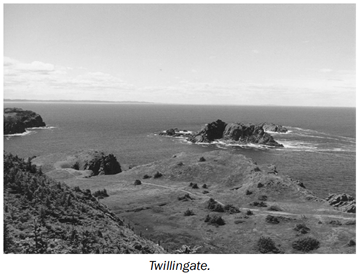
Saturday nights conversation was no different. Before heading to their respective houses nearby, Gary mentioned that he had to go out and take in his gill nets on Sunday morning. A government regulation at the time prohibited fishermen from leaving gill nets in the water on Sundays. Gary had gone out earlier that day to retrieve his nets, but high winds and rough seas prevented him from getting more than three or four. As the two men were leaving the gear shed to go home, David noted that the weather had not improved and urged Gary that it was not safe to go out again on Sunday morning. Gary mentioned something about not wanting to have his nets confiscated by Department of Fisheries and Oceans (DFO) officers if they saw them in the water, but said that hed make up his mind in the morning.
On Sunday morning, Gary chatted with his father, Jack. Once again he worried about what would happen if fisheries enforcement officers seized his nets.
He knew the weather was bad and I didnt want him to go. I told him that it was a lousy rotten regulation anyway and that there were probably so many other nets still in the water because of the bad weather that the DFO fellas would say to hell with it and give up on it anyway, Jack says.
Next page
